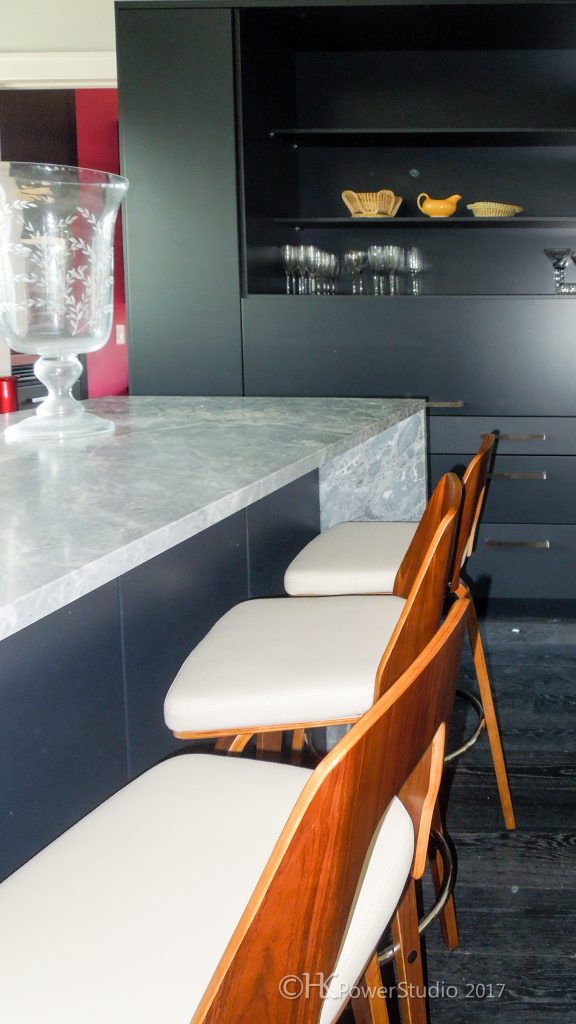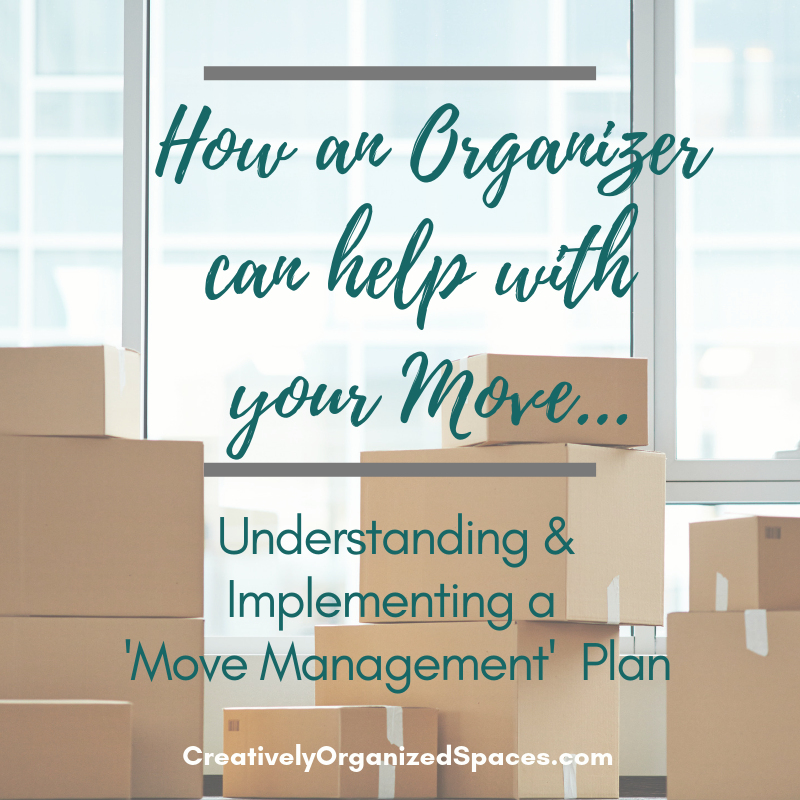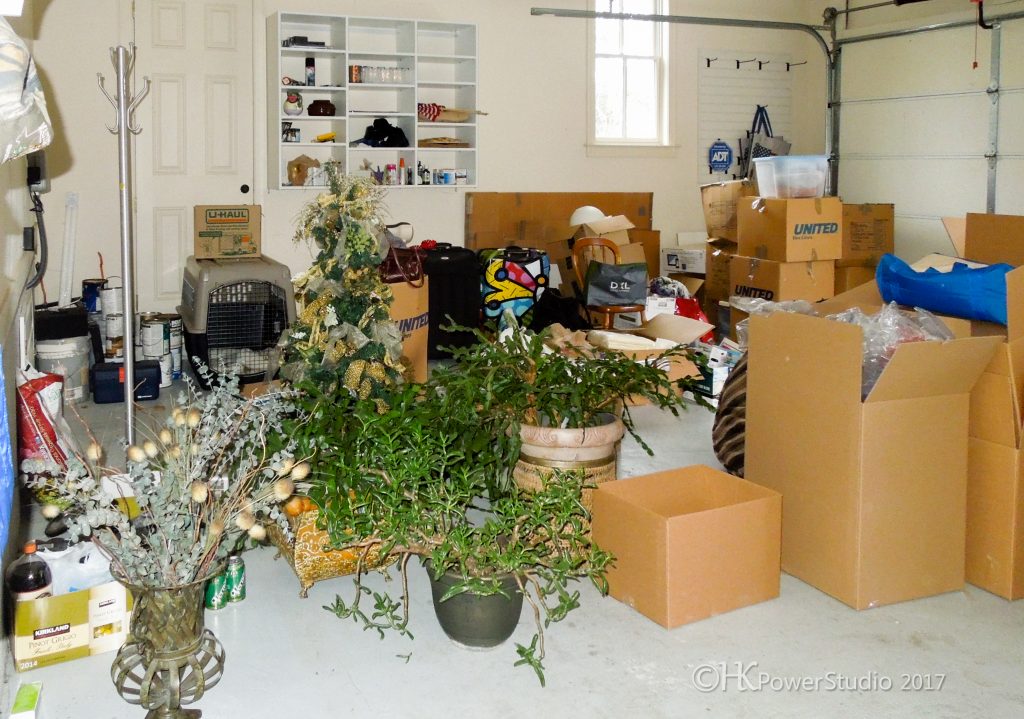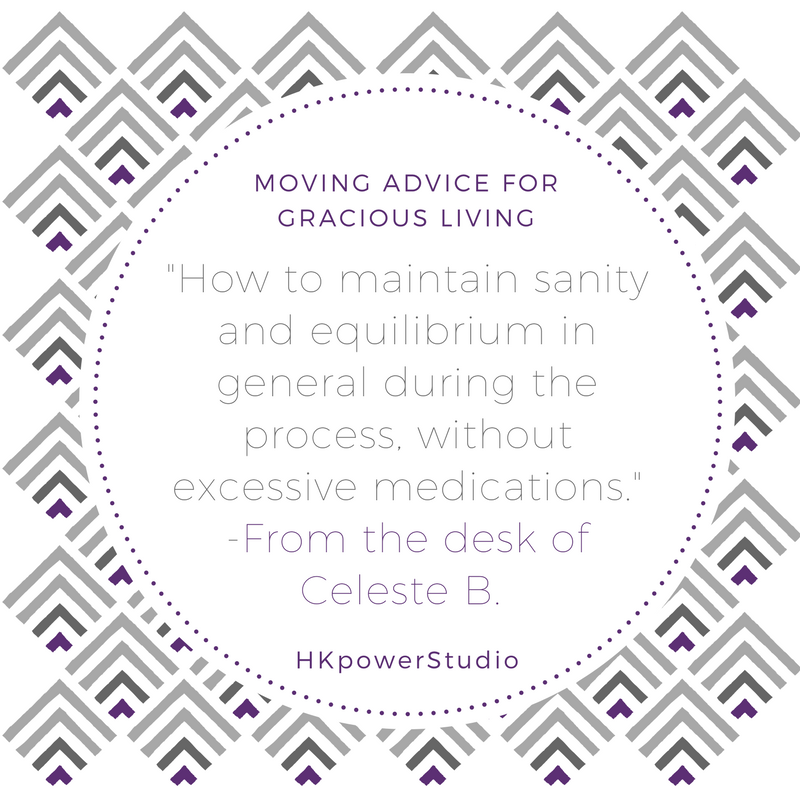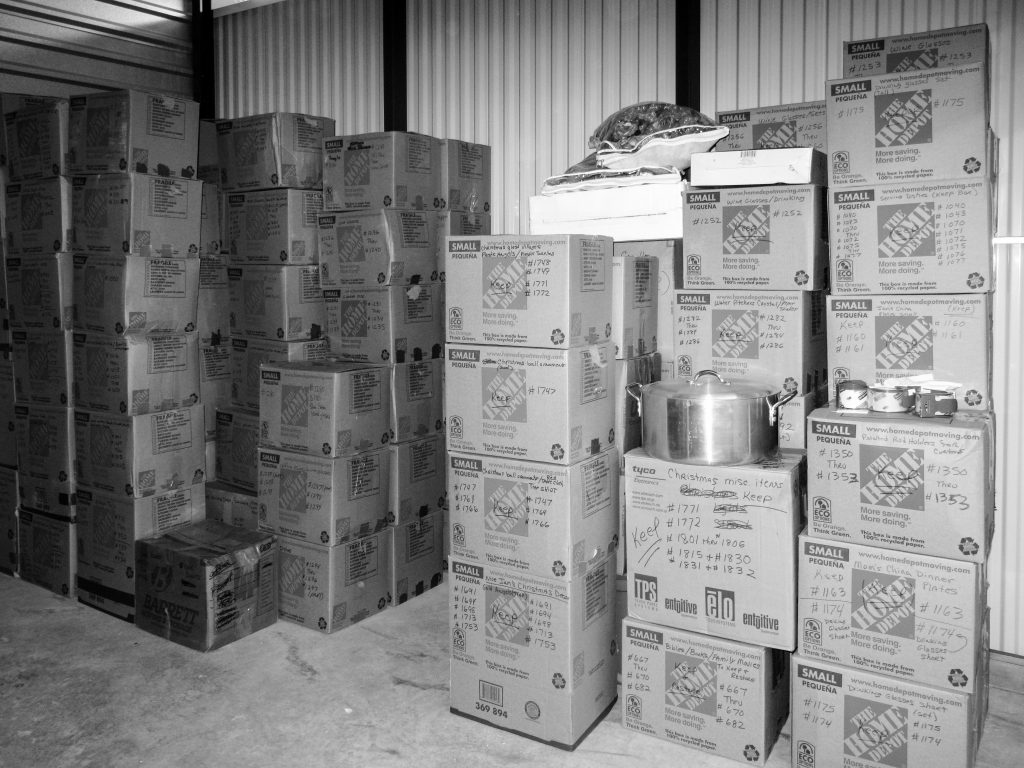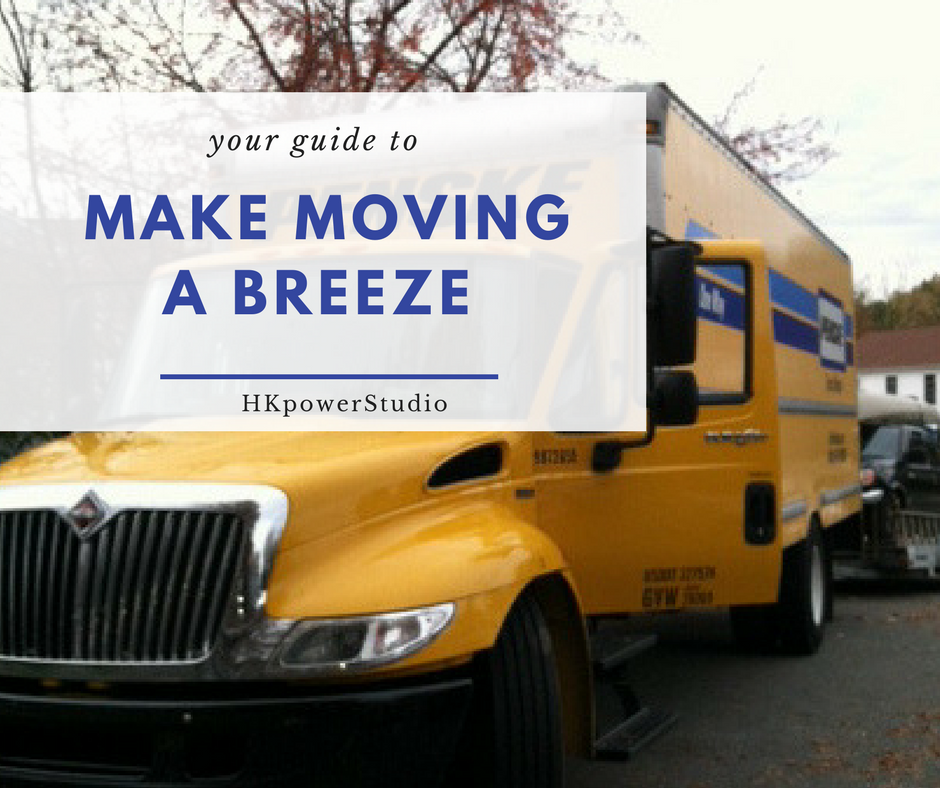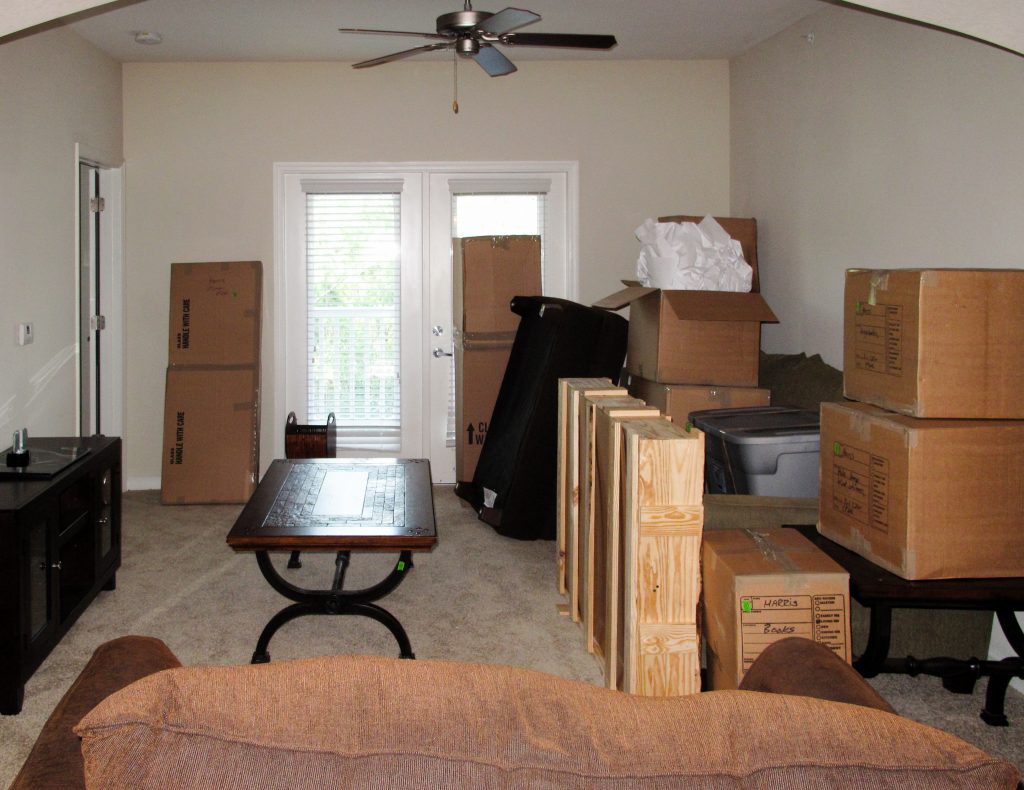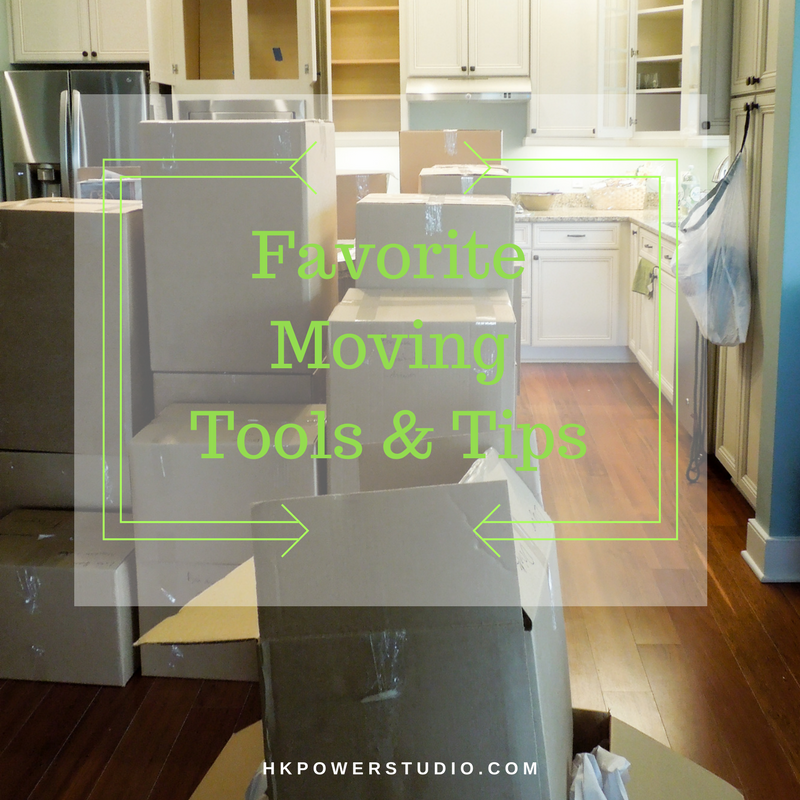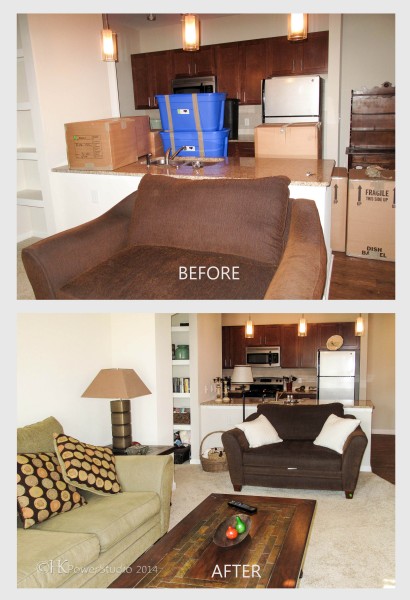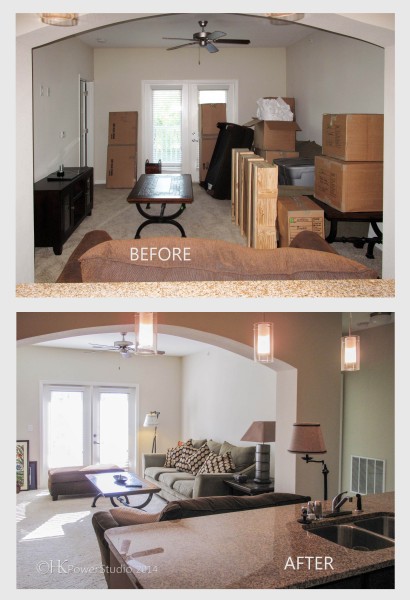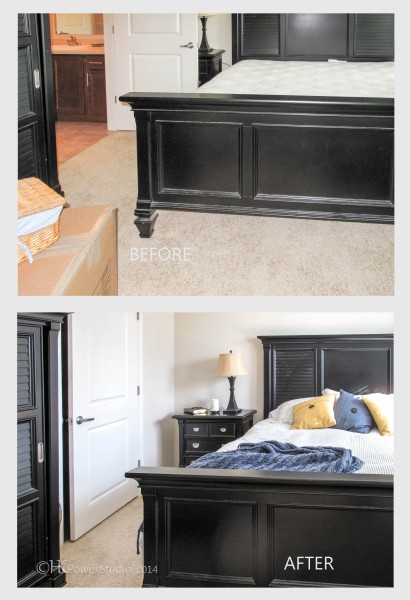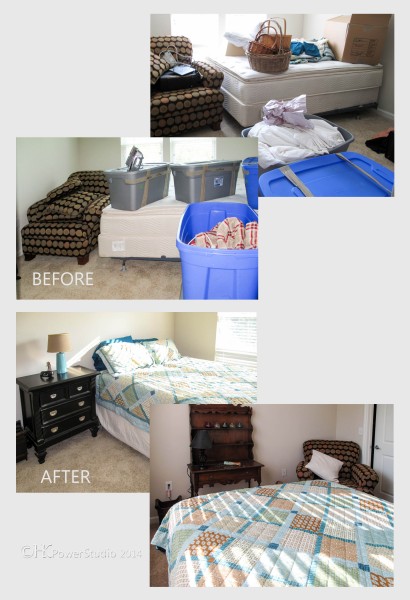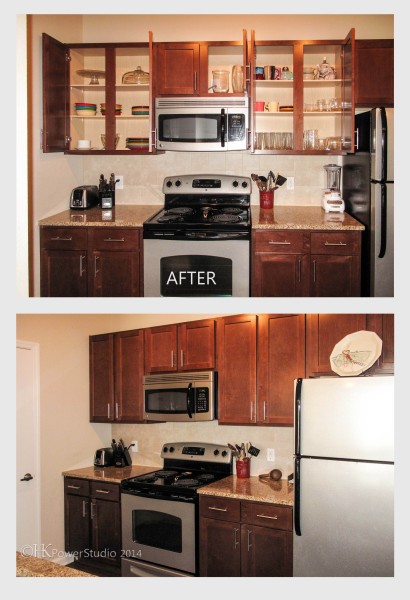I find a lot of people asking me how can a professional organizer help with organizing move management? This is a great question and there are a lot of resources out there for moving, but an Organizer can help you specifically based on your individual needs and schedule. Of course there are a lot of variables like local or long distance, corporate relocation or DIY, remodel with move, downsizing and possible storage needs. So it can get complicated but I hope I can share some of the basic’s in how we PO’s can help with a variety of moving circumstances!
A big part of what an Organizer does to help with moving is what’s called “Move Management” in our industry. The steps below break down the process and organizers can and will help at any stage along the way, from researching moving companies, purging, setting deadlines and realistic expectations to actually helping with packing, move day coordination and unpacking and organizing at the new home.
Start with the end and set your date!! The most important thing to keep an eye on is the end date…work backwards from there. Get your move scheduled ASAP or at least have a ballpark idea of when the move is happening, 6 weeks or 6 months is going to make a big difference! If you know who you will use, go ahead and book your ideal moving date now (you can change it later if needed).
Don’t under-estimate how much work moving is! One of the biggest mistakes I see when it comes to moving is people under-estimating how much time it takes to prepare, but when we break it down with move date in mind it is a much more manageable process.
Research and decide on your moving company or how you will be transporting items from old to new location. Will you be packing items yourself, having a moving company come pack everything or something in between?
If you have a lot of items go through and are downsizing a great deal, it’s never too soon to start this process.
Purge in categories (ex. Clothing, Books, Holiday decor, memorabilia, linens, furniture, etc). Start sorting items one category at a time. I recommend starting with large items like furniture and easy items like linens and toiletries. An organizer can help you decide if it’s best to donate, trash/recycle, sell or give items to family/friends. Use sticky notes and a notepad to identify and tag items to get rid of. This will help you keep track of larger pieces that will not be making the move.
Set aside a short-long term “staging” area that you can use for sorting and temporarily storing items to get rid of (a garage or spare room). This is also an area to keep packing supplies like tape, bubble wrap, paper etc. Start gathering supplies to keep in this area so you can pack as needed.
Make arrangements for weekly pick up or drop off of donations (again, something an organizer can do for you).
Create an inventory “notebook” or file. As you pack boxes, label them with the room they will go to, box number and general contents on your inventory sheet. Also keep track of special items or valuables on this list.
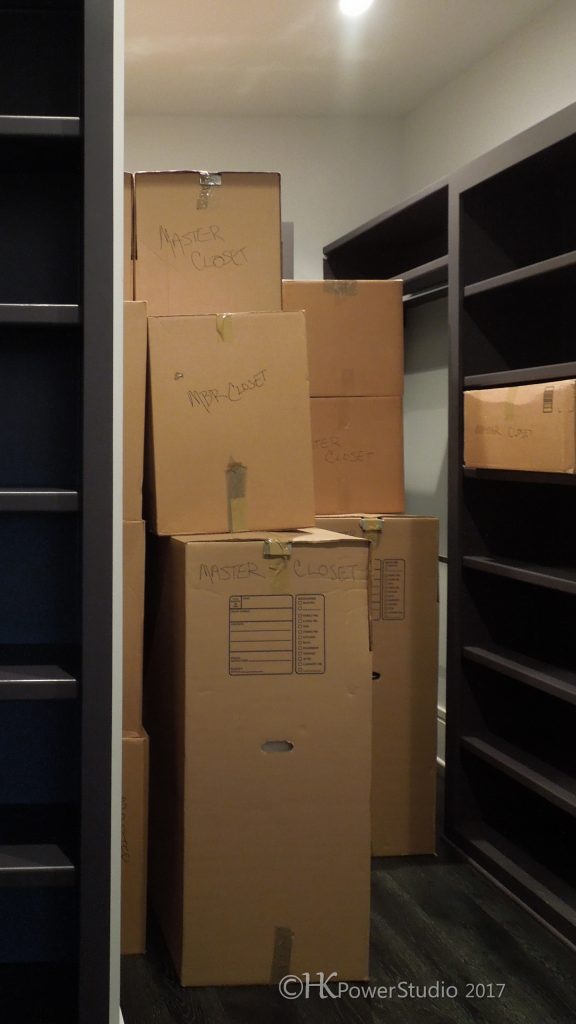
Pack up personal photo’s and extra memorabilia, especially if your home is being staged for sale. Work with your real estate agent, organizer or stager to determine the appropriate amount of “accessorizing” for your home’s size and market.
Book your movers about one month ahead if you have not already!
Book your unpacking crew (either with the moving company or your professional organizer).
Did you know that unpack service does not include putting items away? Unpacking service will only place items on horizontal surfaces, this can sometimes be a big annoyance! Coordinate with your mover and organizer to get you settled in ASAP!
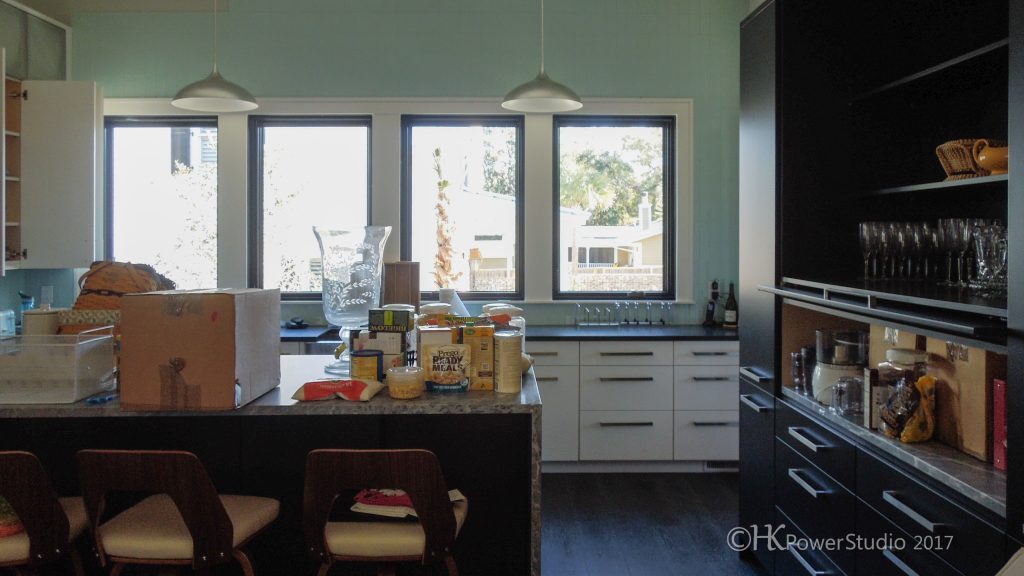
Pack by category and by room or be sure each room and category is ready to be packed by professionals in a way that will make the most sense when unpacking. Gather all papers into one place and any other categories you would like to be packed together.
The last items to be packed should be the first items to be unpacked. Be sure you know where items like sheets, towels and frequently used household items are (ex. coffee pot, cleaning supplies, paper plates or a few essential dishes etc).
Set aside toiletries, clothing, small valuables, medications, food items and important papers you want to hand carry to your new home on moving day. These items should be packed by you in your luggage.
Hire your organizer for move day coordination. They can meet your movers as they pack the contents of your old home, checking to be sure items are properly labeled and identified to be placed in your new home properly.
Hire your organizer (or a crew) for 1-2 days of unpacking service to help get your essential rooms (and beyond) set up for your first night in your new home. An organizer will meet the moving crew, have them place boxes in a location that will not impede household use and will begin unpacking essential rooms like bedrooms, closets, bathrooms and the kitchen.
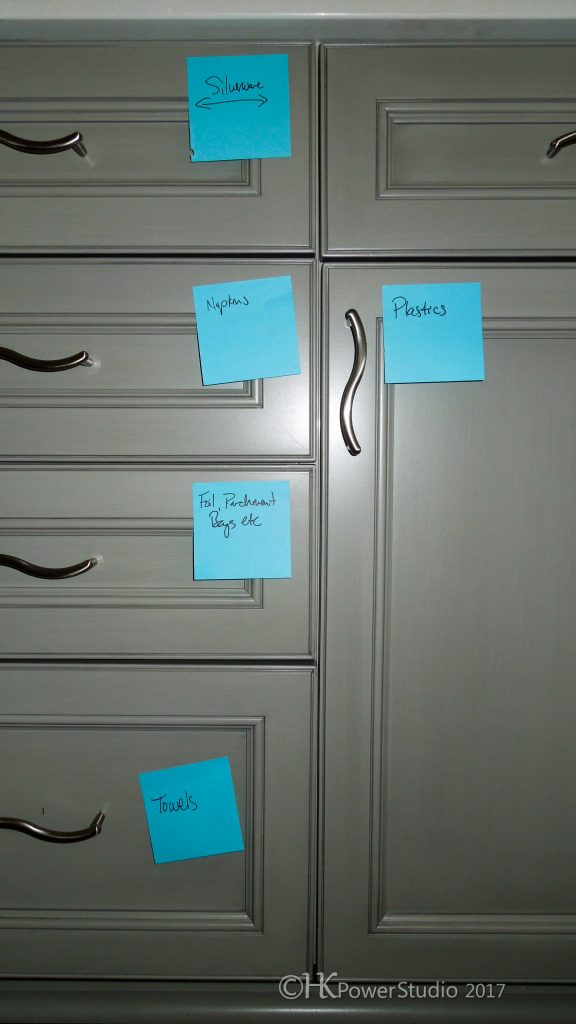
Have a restful first night in your new home!
Moving can be stressful but with planning, prioritizing and help from an organizer, it can be a breeze and a lot of fun settling into a new home!